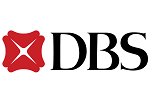 While the global economy shows tentative signs of recovery, SMEs in Singapore are controlling their purse strings tightly, with over 85% of SMEs indicating that ensuring consistent cashflow and managing costs was a high business priority in 2022.
While the global economy shows tentative signs of recovery, SMEs in Singapore are controlling their purse strings tightly, with over 85% of SMEs indicating that ensuring consistent cashflow and managing costs was a high business priority in 2022.
Nevertheless, SMEs appear ready to tackle some of the most prominent cost drivers looming in the horizon, though medium-sized enterprises were generally more confident of coping with rising costs as compared to micro and small businesses:
- On the impending GST hikes, 100% of medium- sized enterprises were confident of weathering the impact, and eight in 10 micro and small businesses said the same
- On the rising global interest rate environment, more than nine in 10 medium-sized enterprises were confident of weathering the impact, and 75% of micro and small businesses said the same
- On inflationary pressures, more than eight in 10 medium-sized enterprises were confident of weathering the impact, and 70% of micro and small businesses said the
- DBS ran its SME Pulse Check
Survey after the Singapore Budget 2022 was announced with 250 SMEs across a broad spectrum of industries to better understand the needs and concerns of the SME community.
Joyce Tee, Group Head of SME Banking, DBS, said, “While SMEs are understandably eager to ride on the economic recovery to accelerate their growth, business owners are taking a prudent approach by placing strong emphasis on their cashflow. It is also heartening to know that SMEs feel more confident about tackling cost challenges, which point to the more resilient position that the business community is in today as compared to a year ago at the height of the pandemic.”
Tee added, “Our survey has revealed that micro and small businesses are generally more worried about coping with rising costs. We will double down on our efforts to proactively reach out to these businesses, which typically face more challenges than their bigger counterparts in managing their balance sheets. For instance, we have leveraged AI/ML algorithmic models to deploy a proactive risk management system. These models enable us to engage vulnerable SMEs at the earliest signs of trouble with advisory support and financing solutions to prevent the situation from becoming unsalvageable.”
Notwithstanding the more favourable business conditions, SMEs are mindful of potential speedbumps ahead that could stymie their growth. When asked about their top concerns for the year ahead, close to half of the respondents indicated labour costs and availability as their top worry. This was followed by about 20% who were most concerned about supply chain disruptions.
Commenting on potential supply chain risks due to geopolitical tensions, Irvin Seah, Senior Economist, DBS, said, “While the global recovery from the Covid-19 pandemic has provided some room for optimism, the geopolitical risks emerging from the Ukraine crisis is a cause for concern, specifically with regards to the upside risks in energy, commodities and food prices globally.”
When asked about growth prospects for the year ahead, SMEs were generally positive, with less than 5% of respondents indicating pessimism. One factor contributing to this positive outlook could be that SMEs were on the whole profitable in 2021 – over 90% of respondents were profitable in 2021, and over 40% of this group reported profit increases of at least 10% as compared to the year before.
When asked about what they looked for most in a banking partner, SMEs flagged their preference for a trusted and reliable banking partner with a long track record of supporting businesses (75% of medium-sized enterprises; 55% of micro and small businesses). Only 1% of SMEs would be satisfied with a purely digital banking partner. However, when asked about discounts and preferential rates, only 5% of medium-sized enterprises marked this as an important factor as compared to 20% of micro and small businesses, highlighting differences in price sensitivity among SMEs.
DBS News


Leave a Reply